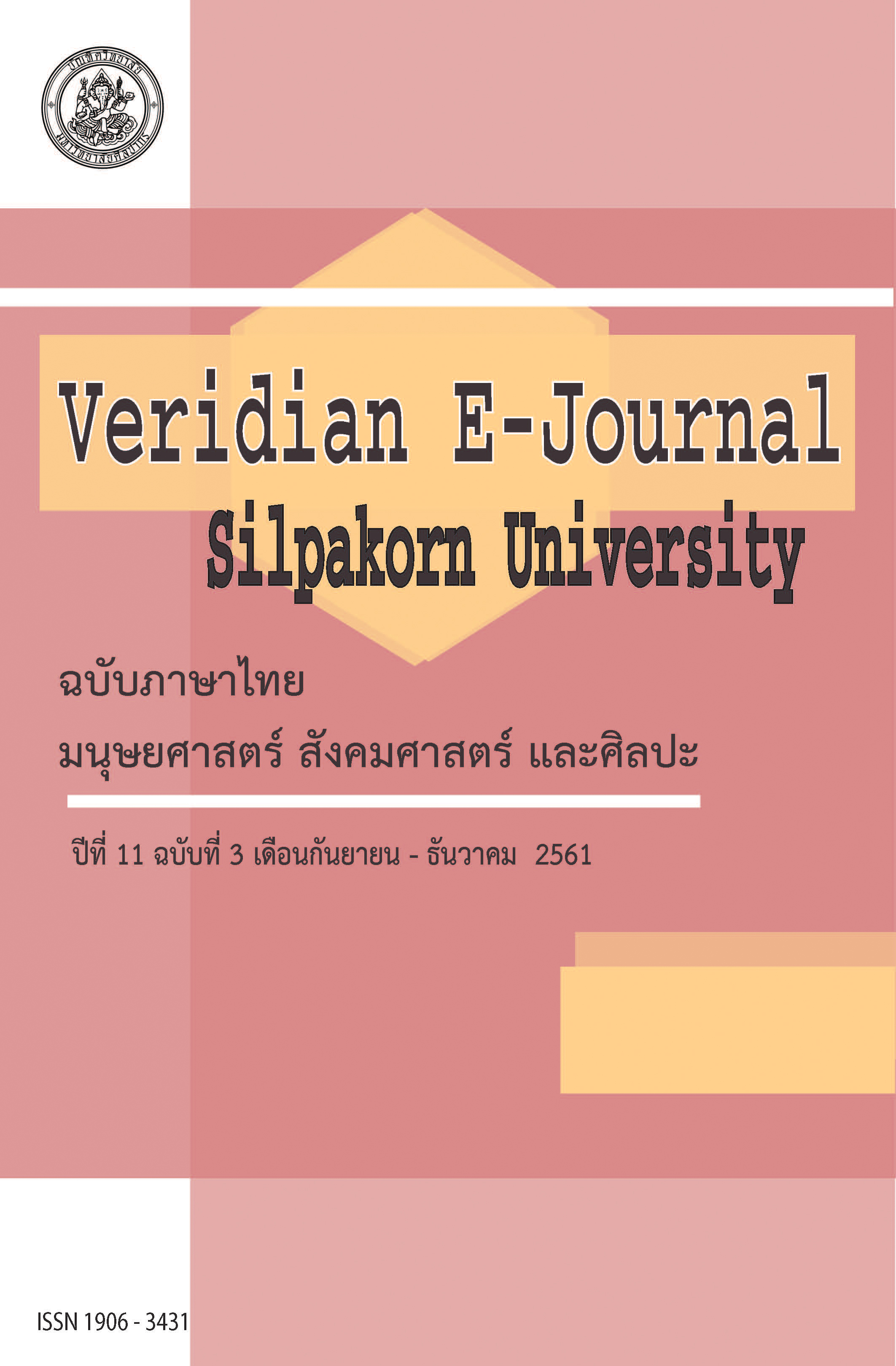แนวทางการพัฒนาทักษะวิชาชีพของนักศึกษาสถาบันการอาชีวศึกษาภาคกลาง 4 เพื่อการพัฒนาทรัพยากรมนุษย์สู่ประเทศไทย 4.0 (Guidelines for Professional Skills of Students from the Institute of Vocational Education: Central Region 4 for Human Development towards Thailand 4.0)
Main Article Content
บทคัดย่อ
การวิจัยนี้มีวัตถุประสงค์เพื่อ 1. ศึกษาระดับทักษะวิชาชีพและระดับปัจจัยที่ส่งผลต่อทักษะวิชาชีพ 2. เปรียบเทียบทักษะวิชาชีพจำแนกตามปัจจัยส่วนบุคคล 3. ศึกษาปัจจัยที่ส่งผลต่อทักษะวิชาชีพ และ 4. ศึกษาแนวทางการพัฒนาทักษะวิชาชีพของนักศึกษาสถาบันการอาชีวศึกษาภาคกลาง 4 เพื่อการพัฒนาทรัพยากรมนุษย์สู่ประเทศไทย 4.0 โดยใช้วิธีการวิจัยเชิงปริมาณและวิธีการวิจัยเชิงคุณภาพ ตัวอย่างคือนักศึกษาระดับประกาศนียบัตรวิชาชีพชั้นสูง (ปวส.) ของสถาบันการอาชีวศึกษาภาคกลาง 4 ที่ใช้วิธีการสุ่มตัวอย่างแบบแบ่งชั้น และสุ่มตัวอย่างแบบง่าย จำนวน 300 คน และผู้ให้ข้อมูลหลักในการสัมภาษณ์ระดับลึก จำนวน 10 คน เครื่องมือที่ใช้ในการวิจัยมี 2 ส่วน คือ แบบสอบถามและแนวคำถามสำหรับการสัมภาษณ์ระดับลึก การวิเคราะห์ข้อมูลเชิงปริมาณ ใช้สถิติเชิงพรรณนา ประกอบด้วย ค่าความถี่ ค่าร้อยละ ค่าเฉลี่ย ค่าส่วนเบี่ยงเบนมาตรฐาน ค่าสถิติที การวิเคราะห์ความแปรปรวน การวิเคราะห์สหสัมพันธ์ และการวิเคราะห์การถดถอยพหุคูณ ส่วนการวิเคราะห์ข้อมูลเชิงคุณภาพจากการสัมภาษณ์ระดับลึกใช้การวิเคราะห์เนื้อหา
ผลการวิจัย พบว่า 1. ระดับทักษะวิชาชีพและระดับปัจจัยที่ส่งผลโดยรวมอยู่ในระดับมาก 2. กลุ่มสาขาวิชา และภูมิลำเนา ส่งผลต่อระดับทักษะวิชาชีพของนักศึกษา อย่างมีนัยสำคัญทางสถิติที่ระดับ 0.05 ส่วนเพศ เกรดเฉลี่ยสะสม และอาชีพผู้ปกครอง ส่งผลต่อระดับทักษะวิชาชีพของนักศึกษาอย่างไม่มีนัยสำคัญทางสถิติ 3. การประเมินผลทักษะ การพัฒนาวิชาชีพครู และสภาพแวดล้อมการเรียนรู้ ส่งผลต่อทักษะวิชาชีพของนักศึกษา อย่างมีนัยสำคัญทางสถิติที่ระดับ 0.05 ส่วนมาตรฐานการศึกษา และหลักสูตรและวิธีสอน ส่งผลต่อทักษะวิชาชีพของนักศึกษาอย่างไม่มีนัยสำคัญทางสถิติ 4. แนวทางการพัฒนาทักษะวิชาชีพของนักศึกษาสถาบันการอาชีวศึกษาภาคกลาง 4 เพื่อการพัฒนาทรัพยากรมนุษย์สู่ประเทศไทย 4.0 ประกอบด้วย 4.1 สถานศึกษาพัฒนาหลักสูตร จัดหาสิ่งอำนวยความสะดวก และสร้างเครือข่ายการทำงานและความคิดสร้างสรรค์ 4.2 ผู้สอนควรจัดกิจกรรมการเรียนรู้และพัฒนาวิธีสอนแบบโครงงานที่ส่งเสริมทักษะทางสังคม ทักษะการสร้างนวัตกรรม และการปฏิบัติงานร่วมกัน 4.3 สถานประกอบการ ควรจัดฝึกปฏิบัติงานที่ส่งเสริมการเรียนรู้ที่หลากหลายและการแก้ไขปัญหาจากการปฏิบัติงานจริง
The purpose of this research was to 1. study level of factor and professional skills 2. compare professional skills classified by personnel factors 3. study factors affecting professional skills and 4. study guidelines for professional skills of students from the institute of vocational education: central region 4 for human development towards Thailand 4.0. This research used quantitative and qualitative research methodology. Samples from stratified sampling and simple random sampling consisted of 300 students studying in high vocational certificate level from institute of vocational education: central region4 and 10 teachers and entrepreneurs for in-depth interview. A questionnaire and in-depth interview guidelines were constructed and used as tools to collect data. Data were analyzed by using descriptive statistics, independent samples t-test, one-way analysis of variance, multiple regression analysis and content analysis.
The research results revealed that 1. Level of factor and professional skills were in high level, 2. Personnel factors affecting professional skills consisted of content subjects, hometown with significant statistics but gender, GPA and occupation affecting professional skills with no significant statistics. 3. The assessment skills, professional development, and learning environment affecting professional skills with significant statistics but the standard and curriculum and instruction affecting professional skills with no significant statistics. 4. Guidelines for professional skills of students from the institute of vocational education: central region 4 for human development towards Thailand 4.0 consisted of: 4.1 Educational institute should develop curriculum, provide facilities, and build working network and creative knowledge. 4.2 Teachers should provide learning activities, develop project-based learning to promote social skills, innovation building skills and teamwork. 3. Enterprises should provide work-related training to promote diverse learning and solve problem from working.

